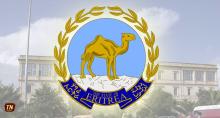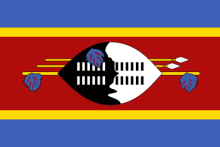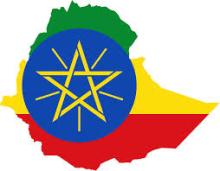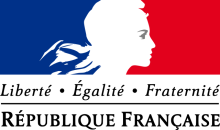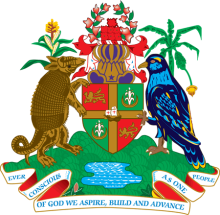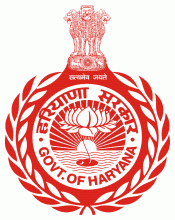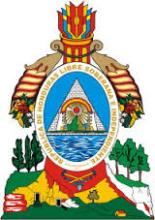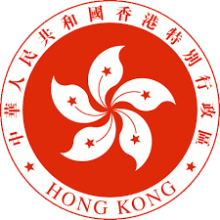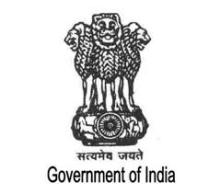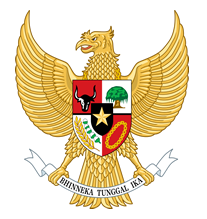A Biblioteca Land Portal inclui recursos de mais de 1.890 provedores de informações nacionais e internacionais. Saiba mais sobre as organizações e instituições que utilizam o Land Portal para partilhar as suas pesquisas, dados e histórias de acesso aberto.
Government of Eritrea
This includes any and all Eritrean government entities and organs.
Government of Estonia
The Government of the Republic of Estonia is the cabinet of Estonia. Under the Constitution, it is officially defined as Estonia's executive authority, and exercises executive power pursuant to the Constitution and laws of Estonia.
The cabinet carries out the country’s domestic and foreign policy, shaped by parliament (Riigikogu); it directs and co-ordinates the work of government institutions and bears full responsibility for everything occurring within the authority of executive power. The government, headed by the Prime Minister, thus represents the political leadership of the country and makes decisions in the name of the whole executive power.
From wikipedia article Government of Estonia
Government of Eswatini
This is the profile for all governmental institutions of Kingdom of Eswatini (formerly known as Kingdom of Swaziland).
Government of Ethiopia
Unique among African countries, the ancient Ethiopian monarchy maintained its freedom from colonial rule with the exception of a short-lived Italian occupation from 1936-41. In 1974, a military junta, the Derg, deposed Emperor Haile SELASSIE (who had ruled since 1930) and established a socialist state. Torn by bloody coups, uprisings, wide-scale drought, and massive refugee problems, the regime was finally toppled in 1991 by a coalition of rebel forces, the Ethiopian People's Revolutionary Democratic Front. A constitution was adopted in 1994, and Ethiopia's first multiparty elections were held in 1995. A border war with Eritrea in the late 1990s ended with a peace treaty in December 2000. In November 2007, the Eritrea-Ethiopia Border Commission (EEBC) issued specific coordinates as virtually demarcating the border and pronounced its work finished. Alleging that the EEBC acted beyond its mandate in issuing the coordinates, Ethiopia has not accepted them and has not withdrawn troops from previously contested areas pronounced by the EEBC as belonging to Eritrea. In August 2012, longtime leader Prime Minister MELES Zenawi died in office and was replaced by his Deputy Prime Minister HAILEMARIAM Desalegn, marking the first peaceful transition of power in decades.
Ethiopia is a federal parliamentary republic.
Source: CIA World Factbook
Government of Fiji
Fiji became independent in 1970 after nearly a century as a British colony. Democratic rule was interrupted by two military coups in 1987 caused by concern over a government perceived as dominated by the Indian community (descendants of contract laborers brought to the islands by the British in the 19th century). The coups and a 1990 constitution that cemented native Melanesian control of Fiji led to heavy Indian emigration; the population loss resulted in economic difficulties, but ensured that Melanesians became the majority. A new constitution enacted in 1997 was more equitable. Free and peaceful elections in 1999 resulted in a government led by an Indo-Fijian, but a civilian-led coup in 2000 ushered in a prolonged period of political turmoil. Parliamentary elections held in 2001 provided Fiji with a democratically elected government led by Prime Minister Laisenia QARASE. Reelected in May 2006, QARASE was ousted in a December 2006 military coup led by Commodore Voreqe BAINIMARAMA, who initially appointed himself acting president but in January 2007 became interim prime minister. Following years of political turmoil, long-delayed legislative elections were held in September 2014 that were deemed "credible" by international observers and that resulted in BAINIMARAMA being reelected.
Fiji is a parliamentary republic.
Government of Finland
This is the profile for the Government of Finland
Government of France
France today is one of the most modern countries in the world and is a leader among European nations. It plays an influential global role as a permanent member of the United Nations Security Council, NATO, the G-8, the G-20, the EU, and other multilateral organizations. France rejoined NATO's integrated military command structure in 2009, reversing DE GAULLE's 1966 decision to withdraw French forces from NATO. Since 1958, it has constructed a hybrid presidential-parliamentary governing system resistant to the instabilities experienced in earlier, more purely parliamentary administrations. In recent decades, its reconciliation and cooperation with Germany have proved central to the economic integration of Europe, including the introduction of a common currency, the euro, in January 1999. In the early 21st century, five French overseas entities - French Guiana, Guadeloupe, Martinique, Mayotte, and Reunion - became French regions and were made part of France proper.
France is a semi-presidential republic.
Source: CIA World Factbook
Government of Gabon
This is the profile for the Government of Gabon
Government of Gambia
This is the profile for the Government of Gambia
Government of Georgia
Georgia is a country in the Caucasus region of Eurasia, located at the crossroads of Western Asia and Eastern Europe. After a brief period of independence following the Russian Revolution of 1917, Georgia was occupied by Soviet Russia in 1921, becoming the Georgian Soviet Socialist Republic and part of the Soviet Union. After independence in 1991, post-communist Georgia suffered from civil unrest and economic crisis for most of the 1990s. This lasted until the Rose Revolution of 2003, after which the new government introduced democratic and economic reforms.
Government type: semi-presidential republic
The Cabinet of Georgia is an executive council of government ministers in Georgia. It is headed by the Prime Minister of Georgia. In the cases of utmost importance, the meetings may be led by the President of Georgia.
from wikipedia (Georgia (country) and Government of Georgia)
Government of Germany
As Europe's largest economy and second most populous nation (after Russia), Germany is a key member of the continent's economic, political, and defense organizations. European power struggles immersed Germany in two devastating World Wars in the first half of the 20th century and left the country occupied by the victorious Allied powers of the US, UK, France, and the Soviet Union in 1945. With the advent of the Cold War, two German states were formed in 1949: the western Federal Republic of Germany (FRG) and the eastern German Democratic Republic (GDR). The democratic FRG embedded itself in key western economic and security organizations, the EC, which became the EU, and NATO, while the communist GDR was on the front line of the Soviet-led Warsaw Pact. The decline of the USSR and the end of the Cold War allowed for German unification in 1990. Since then, Germany has expended considerable funds to bring eastern productivity and wages up to western standards. In January 1999, Germany and 10 other EU countries introduced a common European exchange currency, the euro.
The Federal Republic of Germany is a federal parliamentary republic.
Source: CIA World Factbook
Government of Ghana
This includes any and all of Ghana's government entities and organs.
Government of Greece
This is the profile for the Government of Greece
Government of Grenada
This is the profile for the Government of Grenada
Government of Guam
Spain ceded Guam to the US in 1898. Captured by the Japanese in 1941, it was retaken by the US three years later. The military installations on the island are some of the most strategically important US bases in the Pacific.
Guam is a presidential democracy. Guam is a self-governing unincorporated territory of the US.
Source: CIA World Factbook
Government of Guatemala
This is the profile for the Government of Guatemala
Government of Guernsey
This is the profile for the Government of Guernsey
Government of Guinea
This is the profile for the Government of Guinea
Government of Guinea-Bissau
This is the profile for the Government of Guinea-Bissau
Government of Guyana
Originally a Dutch colony in the 17th century, by 1815 Guyana had become a British possession. The abolition of slavery led to settlement of urban areas by former slaves and the importation of indentured servants from India to work the sugar plantations. The resulting ethnocultural divide has persisted and has led to turbulent politics. Guyana achieved independence from the UK in 1966, and since then it has been ruled mostly by socialist-oriented governments. In 1992, Cheddi JAGAN was elected president in what is considered the country's first free and fair election since independence. After his death five years later, his wife, Janet JAGAN, became president but resigned in 1999 due to poor health. Her successor, Bharrat JAGDEO, was reelected in 2001 and again in 2006. Early elections held in May 2015 resulted in the replacement of President Donald RAMOTAR by David GRANGER.
Guyana is a parliamentary republic.
Government of Haiti
This is the profile for the Government of Haiti
Government of Haryana
Haryana is the 20th state of India that came into being on 1st November 1966 and presently has 21 districts. Previously it was under Punjab. It is situated in the North Western region surrounded by Himachal Pradesh from North, Uttrakhand from North East, Rajasthan from the South, U.P and Delhi from East and Punjab from North West. The largest district of Haryana is Bhiwani while Panchkula is the smallest district. Panchkula, along with Mohali and Chandigarh is called Tricity. The capital of Haryana is shared by its neighboring state Punjab and is Chandigarh, designed by Swiss born French architect, Le Corbusier.
Government of Honduras
This includes all Honduras government entities and organs.
Government of Hong Kong
This is Hong Kong's special administrative government.
Government of Hungary
Hungary became a Christian kingdom in A.D. 1000 and for many centuries served as a bulwark against Ottoman Turkish expansion in Europe. The kingdom eventually became part of the polyglot Austro-Hungarian Empire, which collapsed during World War I. The country fell under communist rule following World War II. In 1956, a revolt and an announced withdrawal from the Warsaw Pact were met with a massive military intervention by Moscow. Under the leadership of Janos KADAR in 1968, Hungary began liberalizing its economy, introducing so-called "Goulash Communism." Hungary held its first multiparty elections in 1990 and initiated a free market economy. It joined NATO in 1999 and the EU five years later.
Hungary is a parliamentary republic.
Source: CIA World Factbook
Government of Iceland
Politics of the Iceland take place in the framework of a parliamentary representative democratic republic, whereby the President is the head of state, while the Prime Minister of Iceland serves as the head of government in a multi-party system. Executive power is exercised by the government. Legislative power is vested in both the government and the parliament, the Althingi. The judiciary is independent of the executive and the legislature.
From wikipedia article Politics in Iceland
Government of India
The Indus Valley civilization, one of the world's oldest, flourished during the 3rd and 2nd millennia B.C. and extended into northwestern India. Aryan tribes from the northwest infiltrated the Indian subcontinent about 1500 B.C.; their merger with the earlier Dravidian inhabitants created the classical Indian culture. The Maurya Empire of the 4th and 3rd centuries B.C. - which reached its zenith under ASHOKA - united much of South Asia. The Golden Age ushered in by the Gupta dynasty (4th to 6th centuries A.D.) saw a flowering of Indian science, art, and culture. Islam spread across the subcontinent over a period of 700 years. In the 10th and 11th centuries, Turks and Afghans invaded India and established the Delhi Sultanate. In the early 16th century, the Emperor BABUR established the Mughal Dynasty, which ruled India for more than three centuries. European explorers began establishing footholds in India during the 16th century.
By the 19th century, Great Britain had become the dominant political power on the subcontinent. The British Indian Army played a vital role in both World Wars. Years of nonviolent resistance to British rule, led by Mohandas GANDHI and Jawaharlal NEHRU, eventually resulted in Indian independence, which was granted in 1947. Large-scale communal violence took place before and after the subcontinent partition into two separate states - India and Pakistan. The neighboring nations have fought three wars since independence, the last of which was in 1971 and resulted in East Pakistan becoming the separate nation of Bangladesh. India's nuclear weapons tests in 1998 emboldened Pakistan to conduct its own tests that same year. In November 2008, terrorists originating from Pakistan conducted a series of coordinated attacks in Mumbai, India's financial capital. Despite pressing problems such as significant overpopulation, environmental degradation, extensive poverty, and widespread corruption, economic growth following the launch of economic reforms in 1991 and a massive youthful population are driving India's emergence as a regional and global power.
India is a federal parliamentary republic.
Source: CIA World Factbook
Government of Indonesia
The Dutch began to colonize Indonesia in the early 17th century; Japan occupied the islands from 1942 to 1945. Indonesia declared its independence shortly before Japan's surrender, but it required four years of sometimes brutal fighting, intermittent negotiations, and UN mediation before the Netherlands agreed to transfer sovereignty in 1949. A period of sometimes unruly parliamentary democracy ended in 1957 when President SOEKARNO declared martial law and instituted "Guided Democracy." After an abortive coup in 1965 by alleged communist sympathizers, SOEKARNO was gradually eased from power. From 1967 until 1988, President SUHARTO ruled Indonesia with his "New Order" government. After rioting toppled SUHARTO in 1998, free and fair legislative elections took place in 1999. Indonesia is now the world's third most populous democracy, the world's largest archipelagic state, and the world's largest Muslim-majority nation. Current issues include: alleviating poverty, improving education, preventing terrorism, consolidating democracy after four decades of authoritarianism, implementing economic and financial reforms, stemming corruption, reforming the criminal justice system, holding the military and police accountable for human rights violations, addressing climate change, and controlling infectious diseases, particularly those of global and regional importance. In 2005, Indonesia reached a historic peace agreement with armed separatists in Aceh, which led to democratic elections in Aceh in December 2006. Indonesia continues to face low intensity armed resistance in Papua by the separatist Free Papua Movement.
Indonesia is a presidential republic.
Source: CIA World Factbook
Government of Iran
This is the profile for the Government of Iran
Government of Iraq
The politics of Iraq place in a framework of a federal parliamentary representative democratic republic. It is a multi-party system whereby the executive power is exercised by the Prime Minister of the Council of Ministers as the head of government, as well as the President of Iraq, and legislative power is vested in the Council of Representatives and the Federation Council.
From wikipedia article Politics of Iraq

